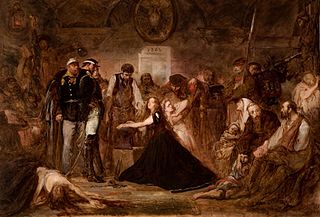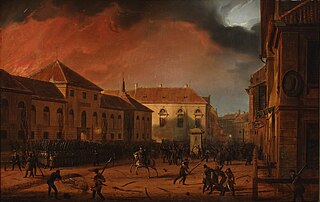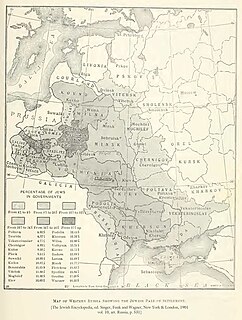 W
WThe General Jewish Labour Bund in Lithuania, Poland and Russia, generally called The Bund or the Jewish Labour Bund, was a secular Jewish socialist party initially formed in the Russian Empire and active between 1897 and 1920. In 1917 the Polish part of the Bund, which dated to the times when Poland was a Russian territory, seceded from the Russian Bund and created a new Polish General Jewish Labour Bund which continued to operate in Poland in the years between the two world wars. The majority faction of the Russian Bund was dissolved in 1921 and incorporated into the Communist Party. Other remnants of the Bund endured in various countries. A member of the Bund was called a Bundist.
 W
WIntermarium was a geopolitical project conceived by politicians in successor states of the former Polish–Lithuanian Commonwealth in several iterations, some of which anticipated the inclusion as well of other, neighboring states. The proposed multinational polity would have extended across territories lying between the Baltic, Black and Adriatic Seas, hence the name meaning "Between-Seas".
 W
WThe January Uprising was an insurrection principally in Russia's Kingdom of Poland aimed at the restoration of the Polish–Lithuanian Commonwealth. It began on 22 January 1863 and continued until the last insurgents were captured by the Russian forces in 1864.
 W
WThe November Uprising (1830–31), also known as the Polish–Russian War 1830–31 or the Cadet Revolution, was an armed rebellion in the heartland of partitioned Poland against the Russian Empire. The uprising began on 29 November 1830 in Warsaw when the young Polish officers from the local Army of the Congress Poland's military academy revolted, led by lieutenant Piotr Wysocki. Large segments of the peoples of Lithuania, Belarus, and the Right-bank Ukraine soon joined the uprising. Although the insurgents achieved local successes, a numerically superior Imperial Russian Army under Ivan Paskevich eventually crushed the uprising. The Russian Emperor Nicholas I decreed that henceforth Russian-occupied Poland would lose its autonomy and become an integral part of the Russian Empire. With Warsaw remaining little more than a military garrison, its university closed.
 W
WThe Pale of Settlement was a western region of Imperial Russia with varying borders that existed from 1791 to 1917 in which permanent residency by Jews was allowed and beyond which Jewish residency, permanent or temporary, was mostly forbidden. Most Jews were still excluded from residency in a number of cities within the Pale as well. A few Jews were allowed to live outside the area, including those with university education, the ennobled, members of the most affluent of the merchant guilds and particular artisans, some military personnel and some services associated with them, including their families, and sometimes their servants. The archaic English term pale is derived from the Latin word palus, a stake, extended to mean the area enclosed by a fence or boundary.
 W
WThe Ukrainian People's Republic (UPR), or Ukrainian National Republic (UNR), was declared in Ukraine following the February Revolution in Russia. It initially formed part of the Russian Republic, and proclaimed its independence from the Russian Soviet Republic on 25 January 1918. During its short existence the republic went through several political transformations - from the socialist-leaning republic headed by the Central Council with its general secretariat to the national republic led by the Directorate and by Symon Petliura. Between April and December 1918 the Ukrainian People's Republic did not function, having been overthrown by the pro-German Ukrainian State of Pavlo Skoropadsky, who proclaimed himself Hetman. From late 1919 the UNR operated as an ally of the Second Polish Republic, but by then the state de facto no longer existed in Ukraine. The 18 March 1921 Treaty of Riga between the Second Polish Republic, Soviet Russia and of Soviet Ukraine sealed the fate of the Ukrainian People's Republic.
 W
WLegion of Ukrainian Sich Riflemen was a Ukrainian unit within the Austro-Hungarian Army during the First World War.
 W
WDenis Ivanovych Zubrytsky (Ukrainian: Дени́с Іва́нович Зубри́цький, was the first Ukrainian historian in Galicia and a major early figure in the Galician Russophile movement.